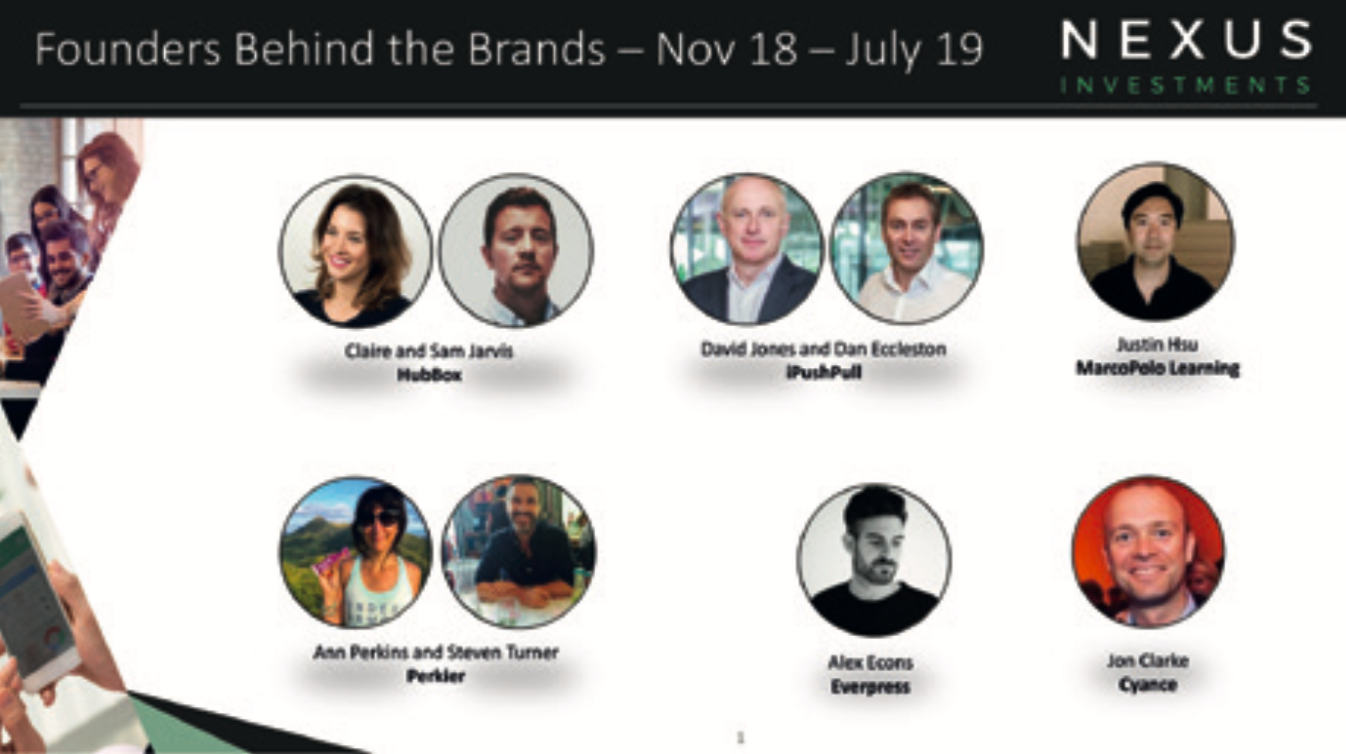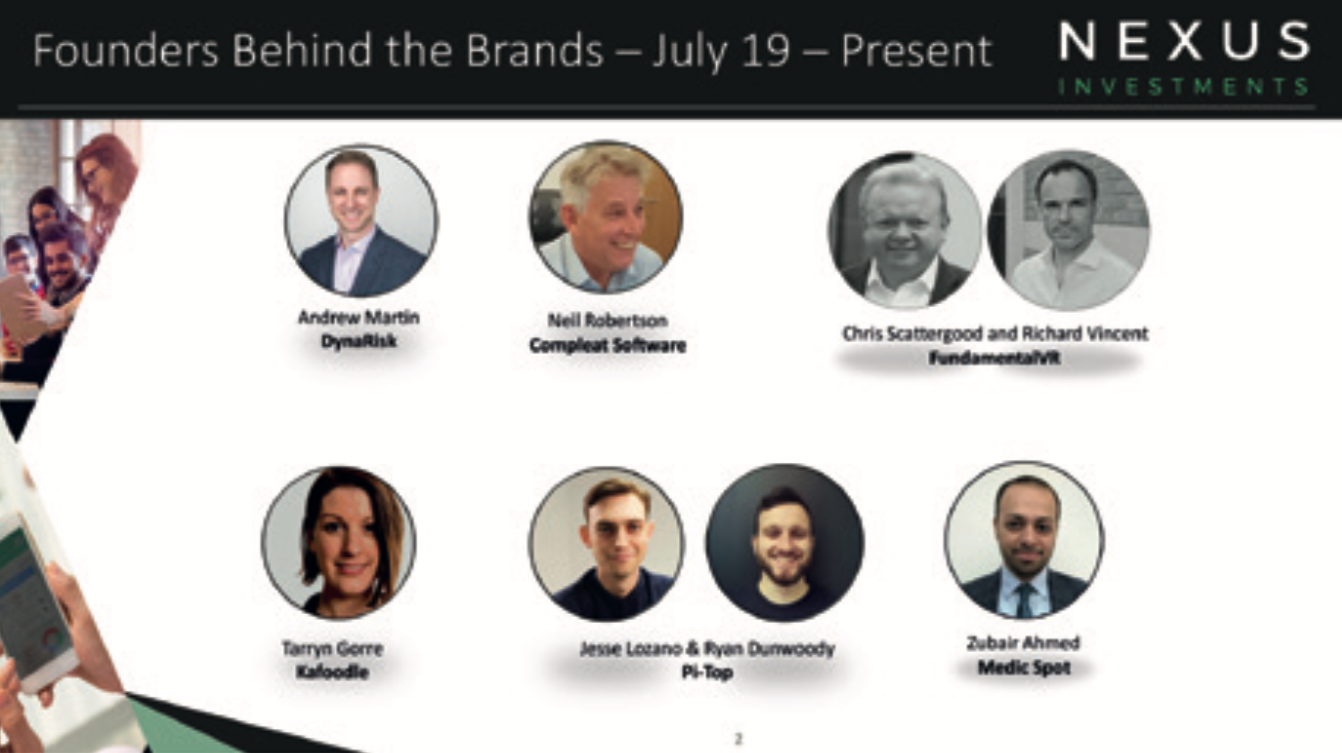Case Study 2 – The Advised Client
A semi-retired GP specifying ‘find me something progressive in my own field’
Another case study, also comes from the summer of 2020. In discussions with their IFA in the southwest of the UK, a retired GP client made it clear to the adviser that they had recently disposed of a 2nd home in Bristol. Now recently retired, they did not want an EIS investment to be made for them (as part of a sensible Capital Gains Tax deferral strategy relating to the aforementioned asset sale), into areas that were too generalist or indeed areas outside of their own sphere of interest. This particular investor had noticed increasing prevalence of digitisation within her surgery work over the previous decade. She made it clear that as her advisor, he needed to find her an EIS fund manager to enable her to be invested into areas such as remote medicine and nutrition/well-being.
This advisor was faced with more of a challenge than usual. His historic contacts (and indeed most of his other clients’ EIS monies) were with the “same old” larger scale tax-efficient fund investment groups, those generally of either a very specialist, or a very generalist approach, often promoting VCTs as well as EISs, often where their own scaling meant less of a focus from the principals on being close to their sectors or investments. Clearly none of them fitted the bill here. As a result of hearing a podcast we had done with Hardman’s Lead Reviewer Brian Moretta, and having researched on the internet for specialist Healthcare-experienced EIS Fund listings (this time, again, the EIS Association website), this advisor saw the name Nexus, which appeared to have been focussed for some years on the areas that were “non-negotiable” to his client He had never heard of Nexus, or of our EIS Fund, but he was intrigued, so he reached out to us, for an initial chat.
His threshold, in terms of expectations by an IFA from a Fund Manager was high. He needed to know we had a robust group history, that the Nexus leaders are aligned (via our own skin-in-the-game, on same terms as fund investors i.e. that we have been prepared to risk our own capital), that our pipeline was as good as we were suggesting. He wanted to know about the background of Harry Hyman in establishing the Primary Health Properties Plc business and leading that to the FTSE-250 and >£2.3bn AUM / almost £2bn market cap from start-up stage. He wanted to know about my own background qualifying with PwC, then latterly Deloitte in tax, and secondment within Bridgepoint, and investment experience spotting, backing and nurturing entrepreneurs. He wished to know about our investment advisory committee, and what role Stephen Lawrence had played in running a number of PE backed businesses in the education sector, how senior Keith Mansfield had been at PwC when London Chairman, and so on. He needed to verify that we had indeed had a partial exit earlier in 2020 from one Ed Tech business at 4.72x / 9.44x after SEIS, but that all our investors had continued to hold because in our view there was plenty further growth to come in that particular investment. He also wanted to see evidence of our six-monthly reporting: did we really show the entry price per share that our investors receive beneficial interest in the underlying investments? How come other EIS fund managers try to avoid showing that if they can do so?
After a number of conversations, and substantial due diligence, the IFA reported back. In his view our offering was streets ahead of some of the much larger and established EIS Fund and VCT competition out there, whom he had regularly dealt with over many years. He felt it was night and day. His client has recently (in Autumn 2020) subscribed, and has 6 underlying holdings now already.
It’s all about the portfolio…
In both the case studies above, where actually has our Fund been deploying those subscribers’ capital?
So far, for each investor that has been into Medicspot (at the forefront of online-video consultation and COVID testing in the UK); Dynarisk (cyber security, particularly for re-sale within the US and European insurance industry); Pi-Top (coding and robotics for teaching in US schools and at home); Compleat (B2B purchase automation accounting software for global SMEs (incl. analytics)); Hub Box (software provided to enterprise retailers (particularly in the US) for them to integrate click and collect alongside major delivery companies such as UPS); and MarcoPolo (award-winning early-years online school/media company, recently partnered with the largest preschool curriculum publisher in the US, for millions of the very youngest students to use as part of their curriculum over the next 5 years).
Those 6 companies, alongside the 6 other portfolio members of our Fund, took part in our Annual 2020 Capital Day in December, for investors to meet their portfolio (this year over Zoom – see Founder images to the right).
I will end this second case study with a message we received from the Scottish NHS Consultant in January 2021 (following receipt of his latest EIS3 form via us):
“Thank you so much for sending me this, really helpful [before 31 January tax return submission]. I also wanted to feedback how interesting I found the recording of the Capital day. I thought it was very well presented and gave me a real taste of the Nexus Fund.”
In summary
I hope that over the course of the two articles, this month and previously, we have likewise given you, the reader, a real taste of the Nexus Investments’ EIS Scale-Up Fund, both its attractions “on the way in” and its successes to date and future promise “on the way out”.
I have not even touched upon what the portfolio companies’ themselves receive from us: nurturing, making introductions, setting strategy, assisting with financing, driving good board behaviour, cultivating the entrepreneurial gene. Nor have I particularly touched upon what many of the portfolio say about us themselves. Perhaps these can follow in a future piece….
For more information on Nexus Investments Scale-Up Fund and our monthly subscription schedules, visit www.scaleupfund.co.uk. For more information on Nexus’s 27-year group history, and to see more of the D/D/E/H companies we have backed to date to globally scale-up, visit www.nivl.co.uk.
















